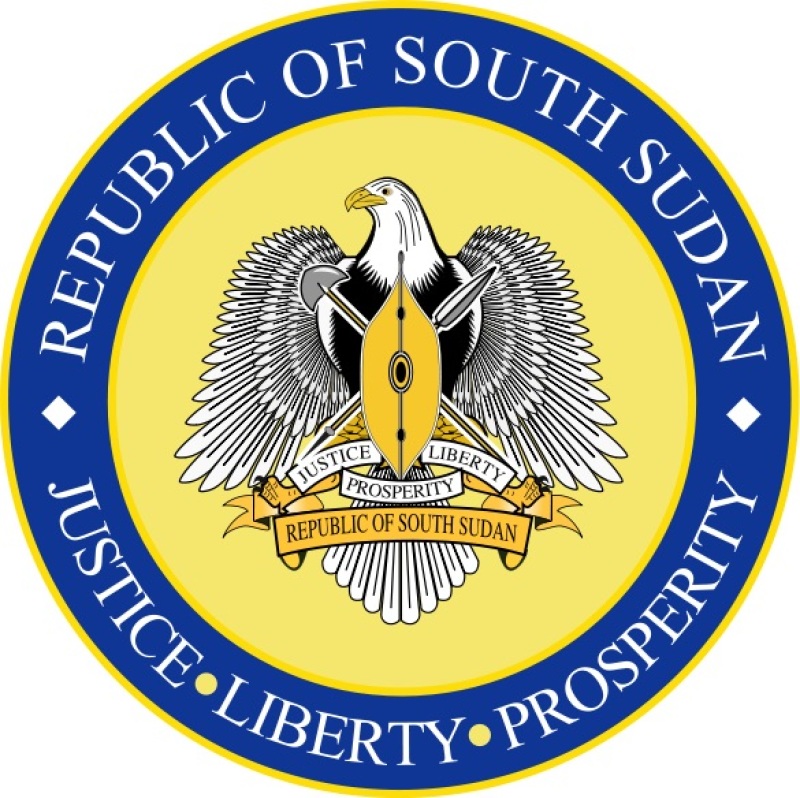

A photo of the seal of South Sudan taken on August 2011.
South Sudanese pastors Peter Yein Reith and Yat Michael Ruot were freed from Kober, a maximum security prison in North Khartoum on Wednesday, August 5. A North Khartoum judge ordered their immediate release. The two Evangelical Presbyterian pastors were imprisoned on six charges of crimes committed against the Sudanese government and were liable to face the death penalty or life imprisonment.
"I am feeling free because I was in jail for many months. I have become like I'm born again," said Ruot in a statement to Christian Solidarity Worldwide (CSW), a nonprofit organization for religious freedom.
Reith and Ruot were arrested and detained by Sudan's National Intelligence and Security Services (NISS) on charges of committing crimes with their bodies, espionage, "collecting and leaking information to the detriment of Sudanese nation security, undermining the constitutional system, promoting hatred amongst sects, breach of public peace, and insulting religious beliefs. The pastors were in violation of Articles 21, 50, 53, 64, 6, and 125 of the Sudanese Constitution.
"The sentence they served in prison is enough. Release them immediately and return the mobile phones and laptops," said Judge Ahmed Ghaboush from Khartoum North Central Court on Wednesday.
Ruot was arrested after preaching a sermon in a city across from Khartoum on Dec. 21, 2014. Reith was arrested after writing a letter about Ruot to the Khartoum's Office of Religious Affairs on Jan. 11, 2015. They were moved from Omdurman, a men's prison to Kober on June 6. They were denied access to visitors and could only speak to their lawyers for fifteen minutes prior to their court hearings.
Lawyers for Reith and Ruot advocated that the pastors were not in violation of Sudanese law. They said that when Ruot preached at Khartoum Bahri Evangelical Church in Dec. 2014, he was urging "believers to be zealous for their church," which is "not an insult against God." The defense also stated that the pastors were illegally detained, that the court lacked evidence, and asked the court to respect the Sudanese Constitution.
"Justice requires that you don't judge simply because you [suspect], without any concrete evidence," stated a defense attorney.
Two witnesses came forward to testify on behalf of Reith and Ruot. Abdul Aziz Khalid, an ex-army general said that the evidence presented by the prosecution on charges of espionage were invalid. The prosecution had provided maps found on Reith and Ruot's computers to the judge. Khalid revealed that the maps were not classified information, but were available to all civilians. An IT expert testified that it would have been easy for someone to plant information on the pastors' computers.
"We continue to urge Sudan to uphold its constitutional guarantees for freedom of religion or belief and its responsibility to promote and protect this right under international law, in order to preserve Sudan's pluralism and diversity," said Mervyn Thomas, the chief executive of CSW in a statement.


















